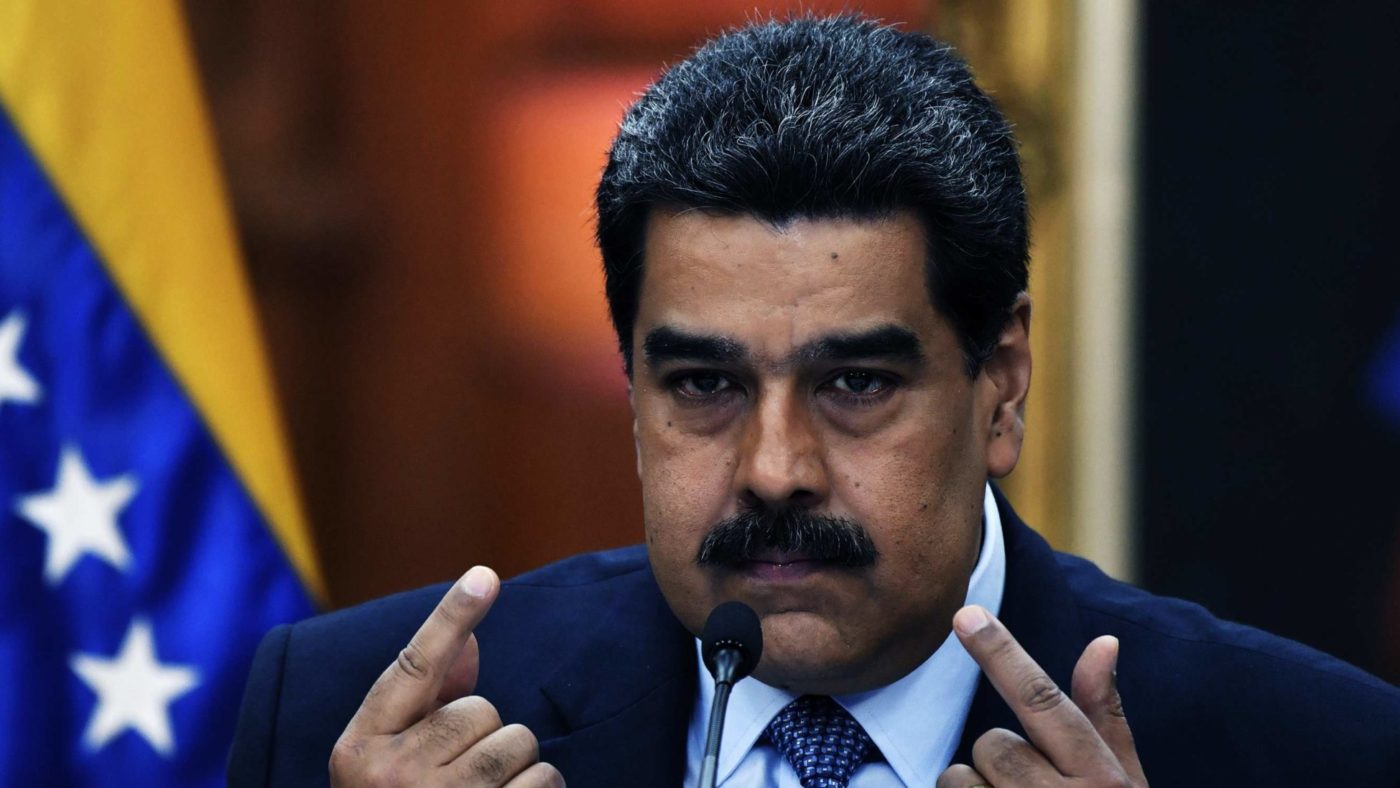Last week the Venezuelan regime spent $200m celebrating Bolivarian socialism with 1,500 comrades in Caracas, the Foro de Sao Paulo. We know it cost that much because a Venezuelan government MP proudly announced it to the world. The event produced lots of propaganda content, though the gloriously comedic awarding of a sword to a group of Americans that included Max Blumenthal, son of Sidney, was the winner on entertainment value.
Several comrades chose to Instagram their meals: “Who says there is no food in Venezuela…?”, they asked – a famine denial that rather runs counter to the supposedly omnipotent impact of US sanctions, which other lefties are fighting by raising money for food.
To look at English language Twitter you would think that the left was still solidly on Maduro’s side, but regional leftwingers who once supported Hugo Chavez largely gave the Caracas shindig a miss, choosing instead to meet in Mexico two weeks ago. Even Bolivia’s Evo Morales, always a staunch ally, could only manage a video message.
As Venezuelan journalist Andrés Cañizalez writes: “It is not a mystical revelation. In political communication it is called “damage limitation”. Everyone wants to keep their distance from Maduro and his disastrous crisis. And especially because the issue of the Venezuelan crisis is and will be a central issue in the presidential campaigns of Argentina and Uruguay, whose elections are set for the same day, on October 27.”
This explains why revered former Uruguayan President José ‘Pepe’ Mujica is now calling Venezuela a “dictatorship”, as is the left’s current candidate for Uruguay’s presidency. Although Mujica has criticised Maduro before this is the first time he’s used the ‘D’ word.
Cynics wondering what changed have had plenty of material to mull over. Gustavo Petro, the left’s candidate in Colombia’s last elections, dropped Maduro last October. Ecuadorean president Lenin Moreno recently called Maduro a “gangster”. El Salvador’s new leftwing president Nayib Bukele has also called Maduro a dictator. And Mexico’s Andres Manuel Lopez Obrador isn’t exactly running to Maduro’s defence. Brazil’s Lula said in April of protests against Maduro: “If the people want to hit the streets & topple someone, let them do it.”
Clearly, the big change is that the collapse of the economy and flood of millions of refugees have shoved Venezuela’s domestic crisis into all of Latin America’s politics, making it a prominent issue in all recent South American elections. And a damning new report by UN High Commissioner for Human Rights, Michele Bachelet, is drawing even more support away from Maduro.
Even the Chilean Communist Party was forced to back away from the regime’s claims that Bachelet – a socialist who survived torture under the Pinochet regime – had written her report under the direction of the US Special Representative to Venezuela, Elliott Abrams.
Oh, and now even Noam Chomsky has joined in the criticism, co-authoring a New York Times piece calling for Maduro to release political prisoners.
The regime is clearly aware of its own isolation. Venezuelan Foreign Minister Jorge Arreaza made a point at the gathering last week of addressing “the self-confused left”, conceding with dramatic understatement that “we are not a perfect government”. Maduro complained about “people who give in, who are afraid to take a picture with Venezuela because Maduro is a dictator and they say: ‘Maduro is a dictator’ and they repeat Donald Trump’s lies.”
Even Chavismo itself is divided over Maduro. Leftist outlets like Aporrea and even Venezuela Analysis are full of dissent. The extremely influential Marxist Heinz Dieterich, who coined ‘socialism of the 21st Century’, believes that “the generals & Chavismo have decided that Maduro must go”. Chavista dissenters, including ex-ministers, have discussed tactics with the opposition.
Criticism is by no means confined to South America: Spain’s socialist leader Pedro Sanchez says Maduro is a “tyrant”, while the populist Podemos leader Pablo Inglesias said in December that “the current political and economic situation of Venezuela right now is dire. To rectify in politics is a good thing”. In France, Jean-Luc Mélenchon’s LFI have seen rebellions over Maduro. And Greece’s Syriza have more or less gone along with the EU line on the regime. In the US, the Democrats seem overly concerned with the chimera of US military intervention but Bernie Sanders has called Maduro an “authoritarian” and previously called Chávez “just a dead communist dictator”.
Here in the UK, however, the Corbynite left has long seemed oblivious to these developments. Then again, bar the odd Chris Williamson appearance on TeleSUR, Latin Americans also seem pretty oblivious to the opinions of the Corbyn crowd.
It’s not just Williamson flying the flag for Maduro’s appalling regime. Shadow Foreign Office minister Liz McInnes has repeated the claim that sanctions against Venezuela are a “war crime”. There is one notable exception, Corbyn’s appearance at a recent Labour Party international conference that hosted Dilma Roussef which Lula has turned into a campaign advert.
The attitude of some Western leftwingers to despotic regimes like Maduro’s was brilliantly captured in a piece in the Caracas Chronicle by American leftist Clif Ross. He described the way some of his compatriots refuse to see what so many Latin Americans see:
“They cling with a death-grasp to their ideology because, with the conception of ideology-as-axiom, one never sees the actual world, but only an image projected onto it like an opaque overlay.”
Ross could just as well be describing Corbynism, increasingly alone on the global left, trying to pretend that Maduro, like a bad smell, isn’t still hanging around.
CapX depends on the generosity of its readers. If you value what we do, please consider making a donation.


